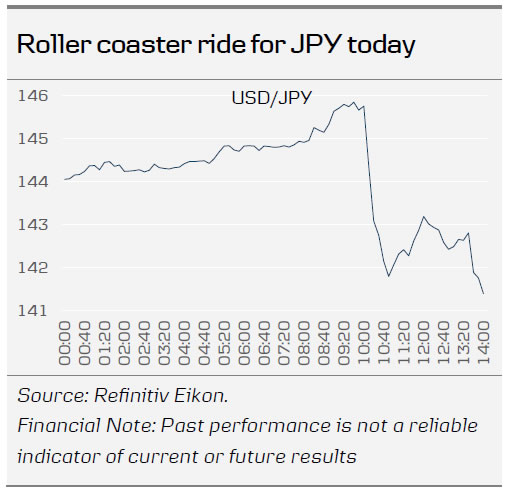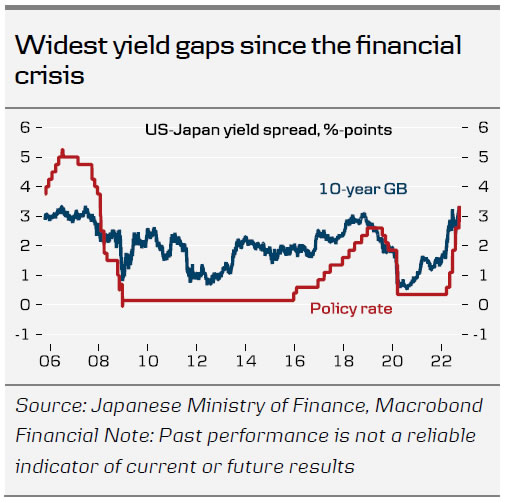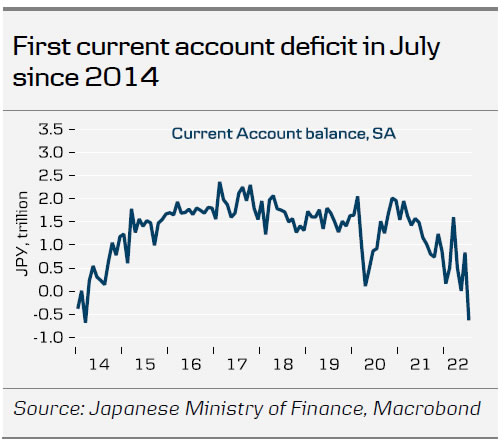- BoJ kept its yield curve control (YCC) policy and dovish forward guidance unchanged at the policy meeting ending this morning.
- Afterwards the Ministry of Finance instructed the BoJ to intervene to support JPY. USD/JPY traded five figures lower to 140.8 levels and then bounced up and down during the following hours.
- Japan has the world’s second largest FX reserve. Thus, it has the ammunition to continue to defend JPY, but in the current economic environment, markets are likely to intensify its pressure on the YCC.
The Bank of Japan (BoJ) intervened in the FX market this morning on behalf of the Ministry of Finance (MoF). This came a few hours after the announcement that BoJ kept its QQE with yield curve control in place and thus remains the only major central bank sticking with negative rates, after SNB hiked today. In the meantime, USD/JPY continued to drift higher amid the confirmation that BoJ will continue to supply JPY to the market to defend its yield curve control. Despite highlighting that BoJ might perform stealth intervention, and not tell the market, earlier in the morning, Japan’s top currency diplomat, Masato Kanda, called a second press conference at 10.15 CET on which he confirmed the decision to step in to the market.
The intervention comes after a 2022 with significant headwinds for the yen. An increasing divergence between the BoJ and other major global central banks has resulted in a widening interest rate gap between Japan and the rest of the world. At the same time, the pressure on global commodities has made significant dents in Japan’s current account surplus, which in July turned into a deficit for the first time in eight years and until today the yen was at its weakest level against the dollar since the last time BoJ intervened to support the yen in 1998.
The decision to stem the massive weakening of the yen triggered a USD/JPY decline by five figures to 140.8 levels and then bounced up and down during the following hours. Japan has the world’s second largest foreign exchange reserve, so there is some weight behind an intervention like this. But the fact remains that the BoJ pursues a monetary policy that sends more yen into the market. It is hardly a sustainable situation for the BoJ to pursue its inflation target while simultaneously propping up the yen. Today’s decision has increased the likelihood that the BoJ will end up giving in to the global pressure for higher yields and abandon the YCC, or allow for a steeper yield curve. It is not least this higher probability that is being priced in the market and which has driven the yen stronger. If the BoJ does not adjust its monetary policy, then it may be difficult to prevent the yen from weakening again, and then we could quickly be back in a situation with a record weak yen again.
For more about the inconsistency between the BoJ’s policy stance and JPY support, see FX Research – Bank of Japan’s Gordian knot, 20 September.



